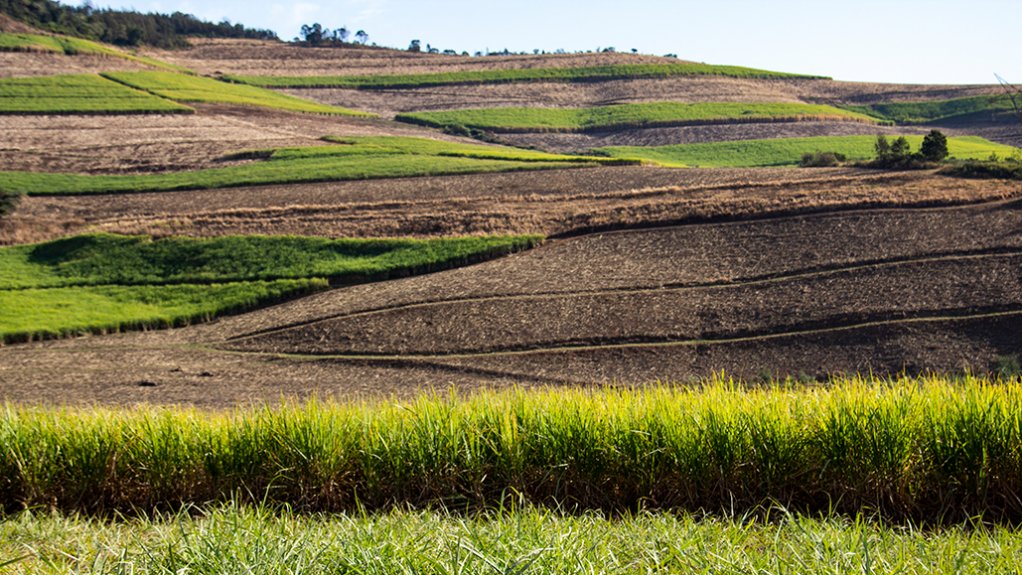Nedbank, Agbiz optimistic about agriculture sector’s growth in 2025
After starting the year with an El-Niño-induced drought that negatively impacted on summer crops, high interest rates, animal disease woes and the persistent logistical crisis, sentiment in the agriculture sector of South Africa has improved towards the end of the year.
The initial despondency was reflected in the Agricultural Business Chamber of South Africa (Agbiz) and Industrial Development Corporation’s Agribusiness Confidence Index (ACI) in the second quarter, when the headline reading decreased to its lowest level in 15 years, at 38.
These challenges – and an expected contraction in the sector for the year, which followed a contraction in the previous year – have played out in subdued bank performance, according to data from the Banking Association of South Africa for June 2023 to June this year.
“A period of consolidation was evident, with exposure to the sector drifting sideways. Demand for credit was down but deposits were at an all-time high, which suggests that farmers were cautious and delayed capital expenditure over the period,” says Nedbank commercial banking agriculture head John Hudson.
More recently, though, sentiment began improving. The ACI for the third quarter, which was released after the general election that resulted in the Government of National Unity (GNU) being formed, rose by ten points to 48.
While this is below the neutral 50-point mark, it indicates a growing sense of optimism, even though many of the challenges experienced earlier in the year have not changed.
“The GNU has brought new energy to the sector and, importantly, there is a commitment to the implementation of the Agriculture and Agro-processing Master Plan,” explains Agbiz chief economist Wandile Sihlobo.
The weather outlook for 2025 is positive, with a La Niña system predicted, and seed sales are encouraging, indicating confidence in fortunes ahead.
Importantly, government continues to prioritise the diversification of export markets for South African agricultural produce.
The South African agriculture sector is heavily reliant on exports, with half of produce by value being exported.
“While our export markets are already diverse, agricultural produce will likely expand in the coming years, mainly owing to previously underused land. Hence, it is vital that the expanded BRICS member nations be pursued as added agricultural export markets – particularly India, Saudi Arabia and Egypt,” Sihlobo notes.
Hudson agrees that South African exports must grow traditional markets and tap into new export markets.
The export drive is particularly urgent amid increasing geopolitical tensions.
Take, for example, the uncertainty around the stance of the new US administration on US import tariffs, and the African Growth and Opportunity Act, as well as the changes to environmental regulations in Europe.
“Fortunately, a memorandum of understanding with China has recently been signed, which is a significant step towards strengthening agricultural trade relations,” Hudson and Sihlobo explain.
The experts add that talks are also under way with the US, India and other parts of Africa to enhance South Africa's agricultural export opportunities.
Despite the consistent increase in volumes of agricultural goods – which may taper this year owing to decreased production caused by the summer drought – there are two factors that continue to present a challenge for South African goods: logistics and an increasing focus on sustainability.
“Despite our world-class production, logistics remain our Achilles heel. It is making our products less competitive during a time when an increasing global focus on sustainability has the potential to trip us up,” Hudson and Sihlobo state.
For example, the EU’s Carbon Border Adjustment Mechanism, which is likely to come into effect for agricultural products by 2030, could result in a carbon tax being imposed on produce from South Africa.
This would have a disastrous effect on something like citrus, which receives the majority of its income from exports, primarily to the EU and the UK.
Neither of these challenges can be addressed overnight, so producers must plan and prepare while the government seeks new export markets.
It is important, though, that producers do not view sustainability as a compliance issue. They should rather see it as a competitive advantage and a way to mitigate climate risk, as well as business risk, given the emphasis on sustainability in many export markets.
The installation of renewable energy, for example, results not only in a reliable supply of energy, but also pegs the cost, which addresses the risk while fixing – or even reducing – a key input cost.
LAND REFORM
A further development in the agricultural sector is the equitable distribution of land to previously marginalised communities. It has taken some time for the puzzle pieces to fall into place, but South Africa is now at a point where blended finance schemes are being rolled out and key partnerships are bearing fruit.
Additionally, after the lack of clarity caused by the land expropriation without compensation debate, which negatively impacted investment perceptions in the sector, a push from the government to strengthen property rights has eliminated the issue of title deeds as a threat.
Going forward, the focus will rather be on where land will come from – and selecting the right beneficiaries for that land.
The government owns about 2.4-million hectares that are due to be released to appropriately selected beneficiaries for commercial production.
This will be a major step towards eliminating the divide that has burdened South African agriculture historically. It is important that the commercial production of these hectares of land must help boost production and create much-needed job creation in rural South Africa.
Hudson and Sihlobo agree that, while expectations are overall favourable for 2025, agriculture remains a cyclical game that is vulnerable to numerous external forces.
“With limited government support, South African producers – and the entire agricultural value chain – need stakeholders like banks to get involved.
“From Nedbank’s perspective, our focus from next year will be on deepening our relationships with our clients to better understand the risk drivers of their agribusinesses, so that we can help them navigate the downturns, support them through the cycle and partner with them on the growth of their businesses,” Hudson points out.
The agricultural sector remains invaluable to the South African economy, hence the experts’ emphasis on more investment for job creation and growth.
Article Enquiry
Email Article
Save Article
Feedback
To advertise email advertising@creamermedia.co.za or click here
Press Office
Announcements
What's On
Subscribe to improve your user experience...
Option 1 (equivalent of R125 a month):
Receive a weekly copy of Creamer Media's Engineering News & Mining Weekly magazine
(print copy for those in South Africa and e-magazine for those outside of South Africa)
Receive daily email newsletters
Access to full search results
Access archive of magazine back copies
Access to Projects in Progress
Access to ONE Research Report of your choice in PDF format
Option 2 (equivalent of R375 a month):
All benefits from Option 1
PLUS
Access to Creamer Media's Research Channel Africa for ALL Research Reports, in PDF format, on various industrial and mining sectors
including Electricity; Water; Energy Transition; Hydrogen; Roads, Rail and Ports; Coal; Gold; Platinum; Battery Metals; etc.
Already a subscriber?
Forgotten your password?
Receive weekly copy of Creamer Media's Engineering News & Mining Weekly magazine (print copy for those in South Africa and e-magazine for those outside of South Africa)
➕
Recieve daily email newsletters
➕
Access to full search results
➕
Access archive of magazine back copies
➕
Access to Projects in Progress
➕
Access to ONE Research Report of your choice in PDF format
RESEARCH CHANNEL AFRICA
R4500 (equivalent of R375 a month)
SUBSCRIBEAll benefits from Option 1
➕
Access to Creamer Media's Research Channel Africa for ALL Research Reports on various industrial and mining sectors, in PDF format, including on:
Electricity
➕
Water
➕
Energy Transition
➕
Hydrogen
➕
Roads, Rail and Ports
➕
Coal
➕
Gold
➕
Platinum
➕
Battery Metals
➕
etc.
Receive all benefits from Option 1 or Option 2 delivered to numerous people at your company
➕
Multiple User names and Passwords for simultaneous log-ins
➕
Intranet integration access to all in your organisation



















